I’m guessing that you already heard about the Siamese cat behavior problems. This breed is one of the naughtiest ones in the feline world. But hey, that’s what makes them unique in the furball world!
If you’re looking to get a cat of this origin, you might want to do thorough research. Not every person suits their needs and not everyone can handle their quirks very well!
It’s hard for cat lovers because these are absolutely gorgeous. It takes a lot of self-control just to not hug them tight and cuddle them all day long.
When you look at those big, beautiful, blue eyes, you never think of all the craziness that’s going on inside of their head! All you can see is one lovely and huggable cat.
You’ve probably already heard about some of the Siamese cats’ behavior problems. But if you’re willing to take on a challenge and are an already experienced cat owner, this rambunctious breed may be the right fit for you.
1. Separation anxiety
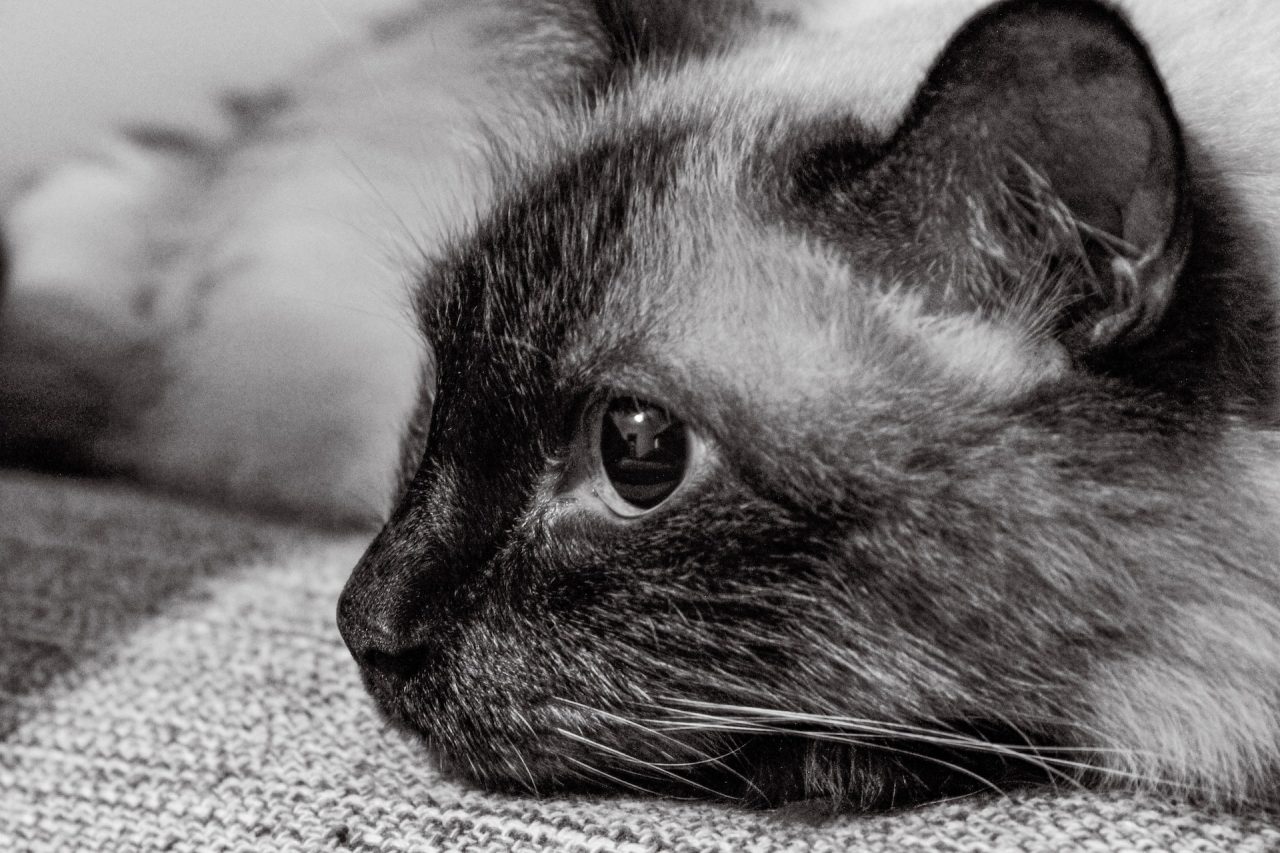
This beautiful breed is known for its severe separation anxiety. Before we dig in further, you must remember that all felines are unique.
This means that even two cats from the same litter might not exhibit similar behaviors. For instance, one pet might be perfectly fine with staying home alone for a couple of hours. On the other hand, her littermate might absolutely lose her cool if she’s left alone even for a minute.
It all depends on the cat as an individual and the way they were raised. Sure, let’s not forget the fact that genetics play an important role in behavior.
If you own a Siamese cat, you might’ve noticed how she’s been stressed and very vocal lately. She could possibly be anxious because of the separation period. The Siamese breed can get extremely connected to their owner and have a hard time when they’re apart.
This is an unusual thing for cats because most of them are completely fine on their own. They even enjoy their alone time and usually spend it lying around the house or snoozing off. But it’s a bit different situation with the Siamese.
2. Aggressive behavior

Next to separation anxiety, one of the Siamese cat behavior problems might be aggression as well. Not all cats will exhibit such behavior but if you pull the right trigger, you just might unleash a beast.
Usually, Siamese is gentle creatures that make good family pets because they’re awesome with children. On the other hand, they can turn into complete monsters.
When they’re not getting enough exercise or attention, this breed might become more aggressive and turn to biting and scratching. Perhaps you’ll want to make your cat a bit busier than usual to try and prevent this from happening.
3. Jealousy and destruction

Although these cats are known to be extroverts in the feline world, they like to keep close to one person. Sure, they don’t mind cuddling someone else and laying by their side.
But if they really like you, they’ll let you know. However, they’ll also let their love for you be known to others. This is also a time when your Siamese cat might exhibit aggressive behavior out of jealousy.
The worst part about this is that it triggers destructive behavior. If your pet’s been stressed, jealous, or depressed, she might become destructive. She’ll probably scratch and bite your furniture or even pee all over the house.
4. Depression
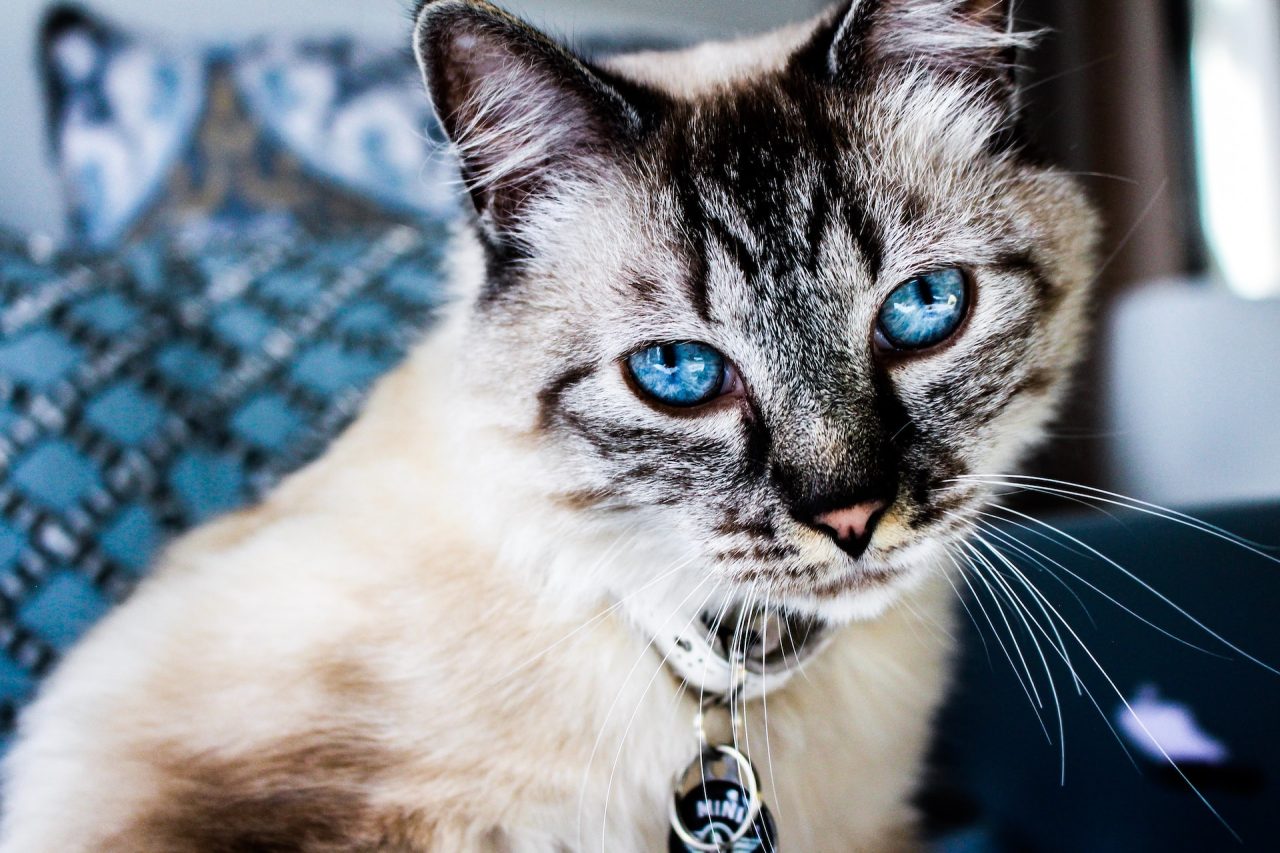
Unfortunately, the Siamese cat is known to get depressed. Sure, this can happen to any breed of cat but the Siamese is especially susceptible to this condition.
It usually happens because your cat feels alone or left out. As I said, these aren’t the type of felines to lay around all day basking in the sun and doing nothing.
They’re extremely social, so they’ll definitely go around asking for your attention and human contact. However, one of the Siamese cat behavior problems arises when she’s confined in the apartment all day long without anyone to play with.
If your pet’s depressed, you might notice her losing weight and refusing to eat. She might even lack the will to engage in play sessions with you and retreat in a corner. Just like with humans, this can be a serious problem for your cat.
5. Needy behavior
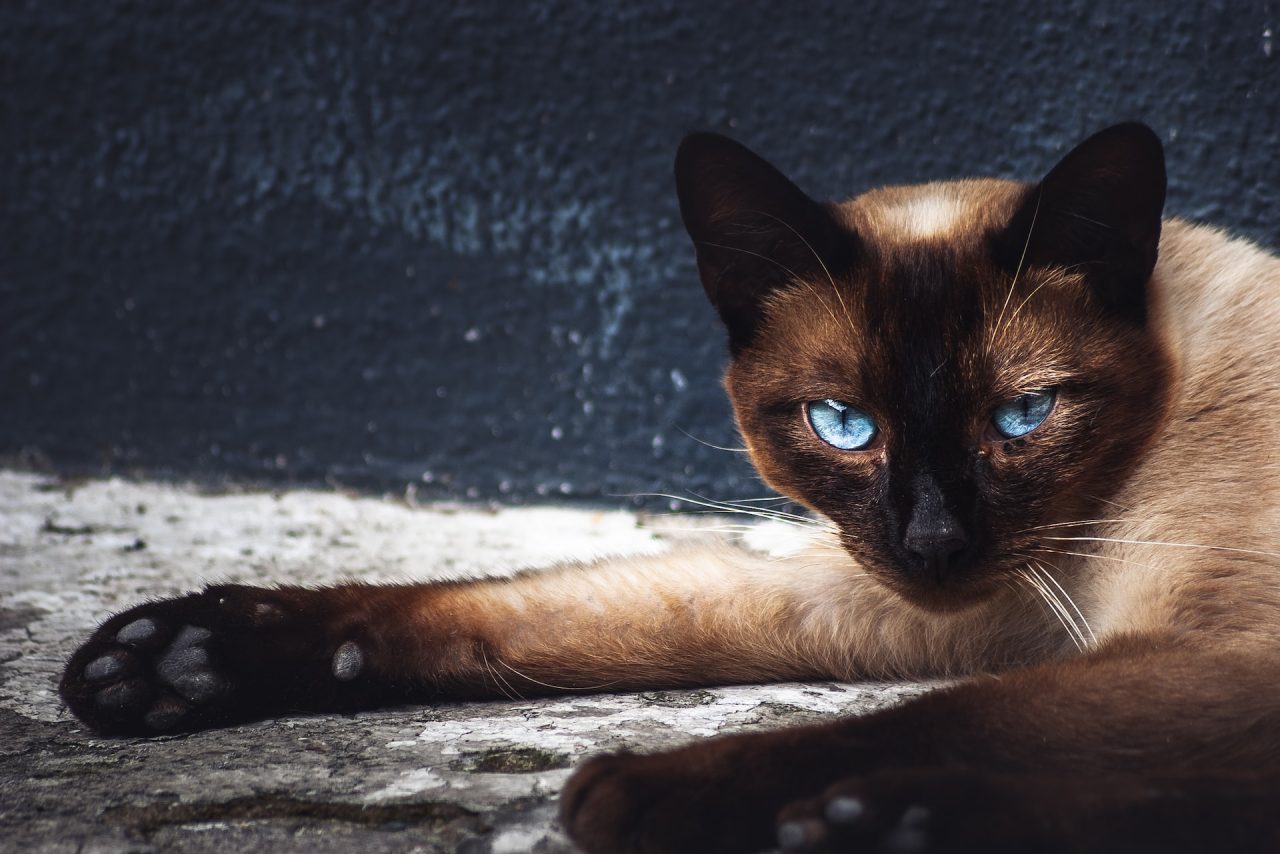
Although some people would love to have a cat that relies on them, there’s a thin line between being dependent on somebody and being clingy.
The Siamese cat is definitely needy and you’ll notice weird behavior. Perhaps she follows you around the house and meows loudly at you.
A needy cat will also try to climb all over you, lick and bite you, as well as rub herself against you. I know my cats are needy because they literally won’t let me out of their sight.
They follow me all over the house, or better yet, chase me down. They don’t want to feel left out in any way. However, I also love when a cat shows you she depends on you so it’s no big deal to me.
I’m always more than ready to give them some extra pets and cuddles, especially when they’re feeling down. However, not everyone is ready for this and this is something you have to take into consideration.
6. Over-grooming
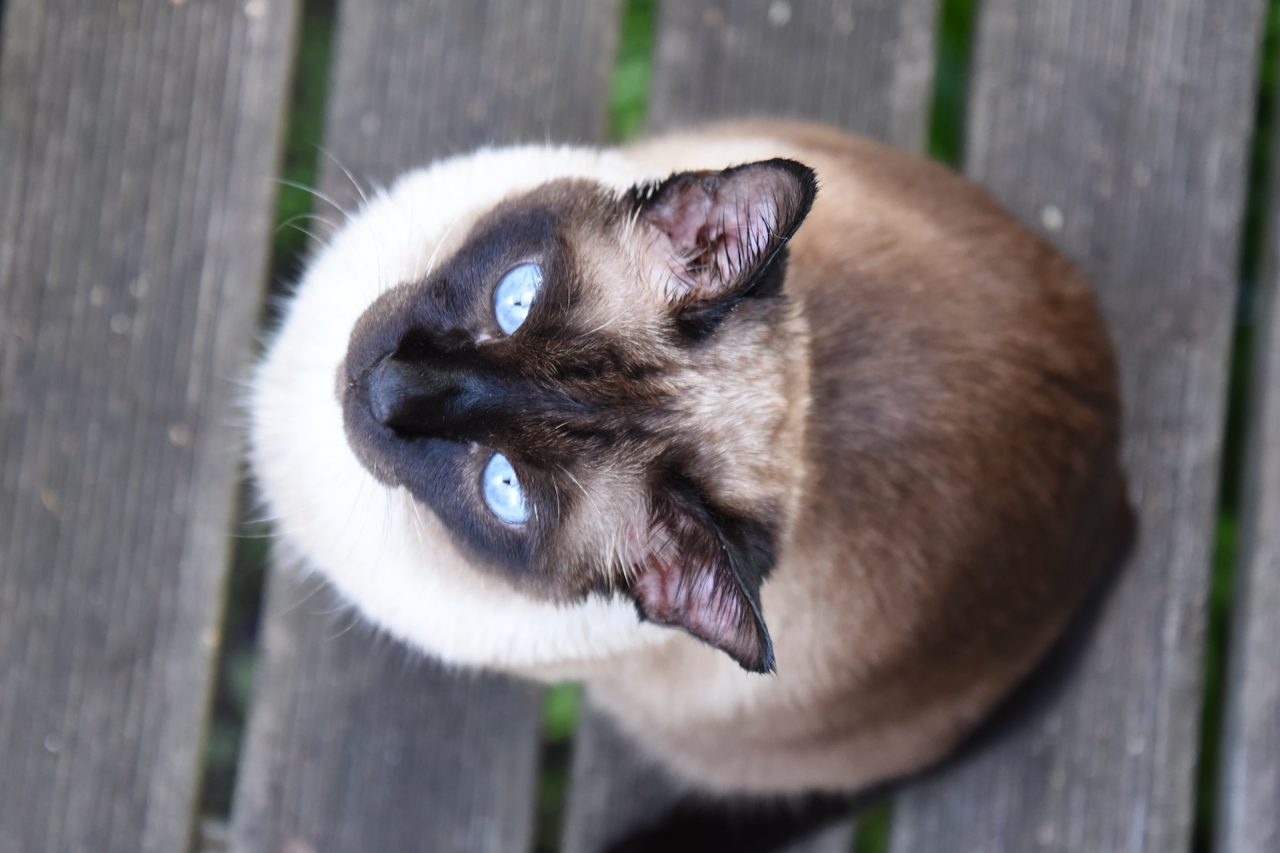
One of the Siamese cat behavior problems might be over-grooming as well. Because they can easily get so stressed and depressed, these felines might engage in excessive grooming.
Don’t get me wrong; grooming is a huge deal to felines. They use this time to brush themselves and keep themselves clean while maintaining a tangle-free coat.
Also, felines will groom each other and use this strategy as a bonding time. So grooming isn’t a bad thing at all. On the other hand, if your cat’s over-grooming herself, there might be a problem.
Usually, this will do a cat that’s struggling with something for a moment. It might be a new change in environment, a new diet, or a new addition to the family.
The Siamese can be really sensitive creatures so you can never know for sure what stressed her out so much. This behavior problem can, unfortunately, result in something even worse.
Excessively licking and biting her fur might cause your feline to lose her coat and create wounds and infections. If this takes place, you should consult with your vet about it.
7. Spoiled attitude

I know what you’re probably thinking. All cats are spoiled, as they should be. There’s nothing wrong with giving your pet some extra cuddles and kisses or throwing in an extra treat in their bowl.
However, what happens when your cat is spoiled and she’s aware of it? The Siamese cat breed is definitely one of those felines that will use you.
They’re extremely stealthy and those little thieves will have you wrapped around their little fingers in no time. Well, who could resist those beautiful blue eyes?
Unfortunately, being spoiled isn’t always a pro for cat owners. Sometimes, things can get out of hand pretty quickly. Before you know it, your pet’s refusing to eat and she’s even throwing tantrums a couple of times a day.
She might even bite or scratch you when something isn’t going by her plan. The worst of all, she can become destructive and lash out at your furniture or inflict harm on herself.
The Siamese cat breed might have the looks but don’t forget that they also have behavior problems!
8. Territorial behavior
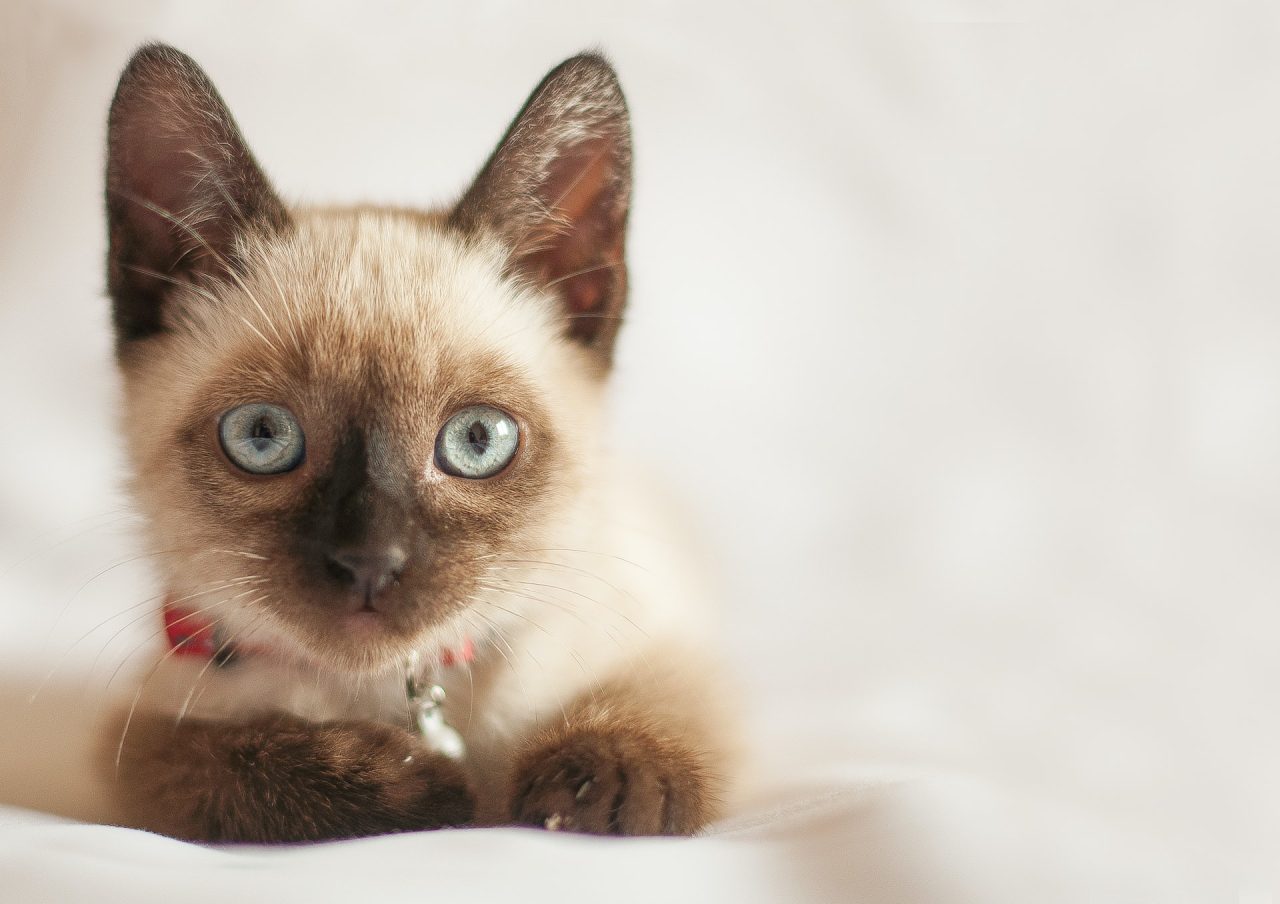
I’ve mentioned how the Siamese can be the jealous type. Jealousy in the feline world isn’t something you envy or wish for. They don’t just act mad and puff their cheeks as we do.
Quite the contrary, these felines will let you know when she’s feeling left out. For instance, your cat might pee all over the house leaving her mark everywhere she goes.
This type of behavior is considered to be territorial. Peeing or marking will warn off other pets in the house and tell them to stay away. If your cat tries to pee on you, I think the message she’s trying to send is pretty clear.
Other than that, felines might as well rub off of things. If you’ve noticed your cat rubbing her head and her whole body on your pile of clothing, she’s probably marking you.
What’s really unfortunate with Siamese cats is that this type of behavior might cause even more problems because they might even become aggressive.
If your pet decides to take it up a notch and show others who the boss is, she might start hissing at your other pets and raising hackles at them. While she’s being a true lovebug with you, she’s giving hell to other pets!
9. Compulsive behavior

Unfortunately, the Siamese cat breed is prone to compulsive behavior. This implies that your pet is performing an action repetitively and persistently.
For instance, over-grooming might also classify as a compulsive behavior. Your cat will lick herself constantly and repeatedly even though she’s just cleaned herself a couple of minutes ago.
At first, you perhaps don’t think much about it because you know that cats are clean freaks. These meticulous creatures can brush themselves all day long and not get bored.
However, if your pet’s showing some kind of pattern in these behaviors, then there might actually be a bigger problem. If she’s also repeating some other actions except for the grooming, she might be in trouble.
Your feline can even develop the Pica syndrome which implies that your cat engages in eating inedible things. If your cat is eating cardboard next to brushing herself, it might be a sign of compulsive behavior.
How to prevent some of the Siamese cat behavior problems?

If you’re looking for ways to prevent these Siamese cat behavior problems, you must first get to know this breed better.
I suggest you dig in and do your research before getting this specific breed. Although they can sell themselves based on their gorgeous looks, the Siamese can give you a hard time as well.
These cats aren’t the type of feline to tolerate you smothering or bothering them. They have their ways of telling you when it’s time to back off and leave them alone.
This cat breed is extremely intelligent which is both a good and a bad thing. When you have a smart furbaby like this, you have to keep them occupied because it will make them happy.
They need daily exercise that will help them burn off any extra energy. Most importantly, they need mental stimulation to help them stay calm.
If you’re not paying enough attention to her needs, your cat might become depressed or have separation anxiety if she’s home alone most of the time.
